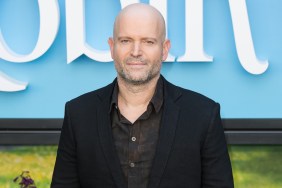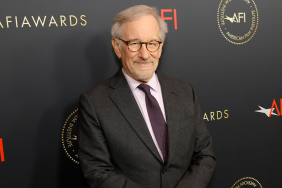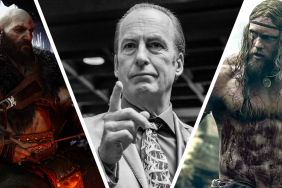Making a “Top Ten Steven Spielberg Movies” is boring. Give that task to any cinephile, or even a casual moviegoer, and 7 of 10 on the list will probably be the same. Schindler’s List, Jaws, Raiders of the Lost Ark, Saving Private Ryan, Jurassic Park, ET, Close Encounters; Those will make it to every ranked list. Spielberg’s filmography is chock full of all-time classic masterpieces that have achieved vast amounts of Oscar gold.
However, there are wonderful Steven Spielberg gems that were completely shut out at the Academy Awards. Since all of those films listed before won at least one statue on Oscar night, this list will focus on the non-awarded films in Spielberg’s career. Here are the ten best Steven Spielberg movies that failed to win a single Oscar.
The Color Purple (1985)

Oscar Nominations: Best Picture, Best Actress, Best Supporting Actress (2), Best Adapted Screenplay, Best Cinematography, Best Art Direction, Best Costume Design, Best Original Score, Best Original Song, Best Makeup
Along with 1977’s Turning Point, The Color Purple shares the unfortunate record for biggest shutout in Oscar history. Both films were nominated for a whopping 11 Academy Awards, and neither won any. Steven Spielberg’s adaptation of Alice Walker’s powerful novel is emotionally poignant and one of the best films of 1985. The Color Purple is the first straight drama that Spielberg attempted in his career. He was known for bombastic popcorn movies. Also, Many people thought he was the wrong director for the material. A white Jewish man doesn’t quite have the proper perspective of a young black woman at the turn of the century. However, Spielberg pulled it off wonderfully. This film really exhibited that Steven Spielberg could do dramas just as well as he can do adventure, science fiction, or thriller.
Minority Report (2002)
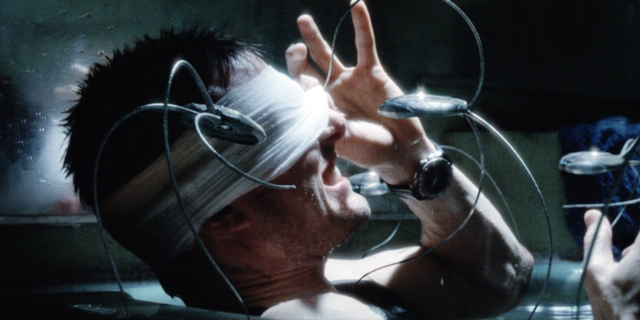
Oscar Nominations: Best Sound Editing
Steven Spielberg spent years researching how technology would advance in the next 50 years. So when he adapted Philip K. Dick’s short story, the world of 2054 Washington DC would be as accurate and believable as possible. Besides the presence of psychic beings precogs, you can’t quite call Minority Report science fiction. It is more of a futuristic crime drama, and it is absolutely phenomenal. Tom Cruise is at his best as John Anderton, a PreCrime officer who uses psychic images to capture would-be criminals. Sure, the thematic balance between fate and choice gets a little shaky here and there, but the film is a visual feast.
You could almost watch Minority Report on mute and have a wonderful time. The sequences of Anderton scrubbing the images is perfectly executed and oddly prophetic to today’s technologies. Also, everyone’s eyes are scanned and advertising is directly personalized to them. Who doesn’t think that will be a thing? Spielberg brings his patented perfect effects to the table and washes out the film with a stark bluish filter. It makes the film so moody and believable. This film proved that Spielberg could still pull of sci-fi better than anyone.
Amistad (1997)

Oscar Nominations: Best Supporting Actor, Best Cinematography, Best Costume Design, Best Original Score
Not since Schindler’s List has a Steven Spielberg movie tackled such a serious, delicate subject. Amistad was the name of a slave ship heading from Cuba to New England in 1839. A wonderful Djimon Hounsou is an African tribal leader the leads a mutinous revolt, but eventually gets captured and tried for murder. The film follows the debate over the concept of humanity concerning slaves in 1839, and that is a touchy subject. The film is set further in the past than any of Spielberg’s other films. However, the meticulous craft is just as perfect as you would expect. Also, unsurprisingly, the performances are authentic and intense.
Ready Player One (2018)

Oscar Nominations: To be determined…
This one may be a bit of a cheat because it hasn’t even had the chance to receive an Oscar yet. Ready Player One is adapted from the Ernest Cline book and is 100% Spielberg just playing to Xennials. For those people born somewhere between 1977 and 1985, Ready Player One is populated with every little piece of nostalgia you could possibly hope for. The film may come across as too childish to older audiences. Conversely, younger audiences won’t appreciate the dated intellectual properties.
For the first time in a very long time, Steven Spielberg was just having fun. Also, he is probably the only director who could get all these IPs to come together. It is the Who Framed Roger Rabbit of the new millenium. If the film has any chance at a statue, it will be for its extraordinary visual effects. However, it will most likely go home empty-handed.
Empire of the Sun (1987)

Oscar Nominations: Best Film Editing, Best Cinematography, Best Art Direction, Best Costume Design, Best Sound, Best Original Score
One of the greatest things to come out of Steven Spielberg’s Empire of the Sun is the discovery of Christian Bale. He plays a young boy named Jim. He has been separated from his affluent parents and lifestyle during the Japanese population of Shanghai. With the opulent Spielberg craftsmanship being buffered through this young boy trying to make his way in a Japanese prison camp is beautiful. The conflicts of the Sino-Japanese war during WWII are rarely discussed or exhibited through cinema. Spielberg predictably created a wonderful epic and gave us one of our very best actors.
The Adventures of Tintin (2011)
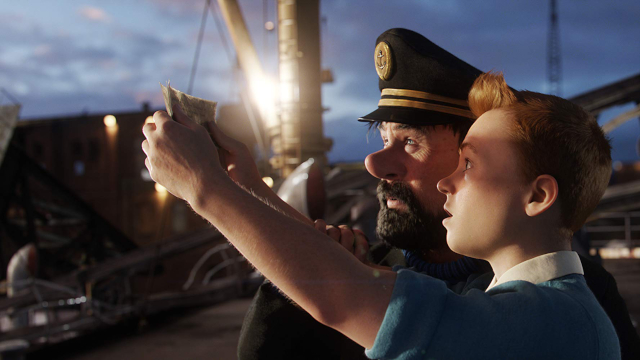
Oscar Nominations: Best Original Score
This may be a bit contentious, but The Adventures of Tintin is a rip-roaring adventure of the highest order. The prospect of Steven Spielberg and Peter Jackson teaming up to make an animated romp based on Herge’s famous novels felt a bit strange at first. However, once you give this film a chance, it is glorious entertainment,. The film follows TinTin (Jamie Bell), a curious young man who after finding a scroll inside a model ship, sets off on a globetrotting treasure hunt with Captain Haddock (Andy Serkis). The music, the action, the comedy…it all just fits together like a fine timepiece. Finally, to prove how great The Adventures of Tintin is, besides Spielberg directing and Jackson producing, look at the writers. Edgar Wright, Joe Cornish, and Doctor Who’s Steven Moffat. The film is as good as you can expect from that pedigree.
Munich (2005)

Oscar Nominations: Best Picture, Best Director, Best Adapted Screenplay, Best Film Editing, Best Original Score
Munich is pretty much a silent Masterpiece among Steven Spielberg’s filmography. Not since Schindler’s List has Spielberg’s Jewish heritage injected such insight and personal stakes into one of his movies. Through every second of the film, you can feel his need and desire to tell the story and speak for the victims.
The film focuses on the aftermath of the terrorist attacks at the 1972 Munich Olympics. Palestinian terrorists killed 11 Israeli athletes they were holding hostage. Golda Meir somewhat recklessly enlisted 5 inexperienced Mossad agents to track down the perpetrators and kill them. What follows is an incredibly tense and exciting drama that perfectly balances the need for retribution with the themes concerning the cycle of violence and collateral damage. To this day, it is insane that this film lost the Best Picture award to Crash.
A.I. Artificial Intelligence (2001)

Oscar Nominations: Best Original Score, Best Visual Effects
Many people will think the addition of this film is contentious, but that is unfair. The history behind the adaptation of Brian Aldiss’s short story Supertoys Last All Summer Long is legendary. The mythic Stanley Kubrick worked on A.I. Artificial Intelligence until he hooked up with Steven Spielberg to collaborate on it. When Kubrick passed away in 1999, it fell to Spielberg to direct the project. Peoples’ problems with this film is that they feel Spielberg softened the film, especially during the climax.
However, according to those in the know, it was exactly the opposite and Kubrick would have loved Spielberg’s ending. Regardless of this, A.I. is an incredible sci-fi epic. The visual effects of the different generations of robots is flawless. Also, Pinocchio-inspired story is heartfelt and emotional. However, the real power behind the film are the performances of Haley Joel Osment as David and Jude Law as Gigolo Joe. They are truly extraordinary.
Catch Me if You Can (2002)

Oscar Nominations: Best Supporting Actor, Best Original Score
Catch Me if You Can is one of the most light-hearted films that Steven Spielberg has made. The film follows the true story of Frank Abagnale, Jr. Abagnale, played perfectly by Leonardo DiCaprio, was a young man who fraudulently posed as a pilot, a doctor, a lawyer, and several professions before his 19th birthday. The cat an mouse story between DiCaprio and Tom Hanks is just a riotous good time.
The film is very different for Spielberg faire. John Williams score is much smaller and unique. Also, The 1960s palette is so stylized that it almost feels surreal. However, in a classic Spielberg-ian touch. The heartfelt, father-son relationships of Dicaprio with both Christopher Walken and Hanks really keeps the hijinks emotionally grounded.
War Horse (2011)
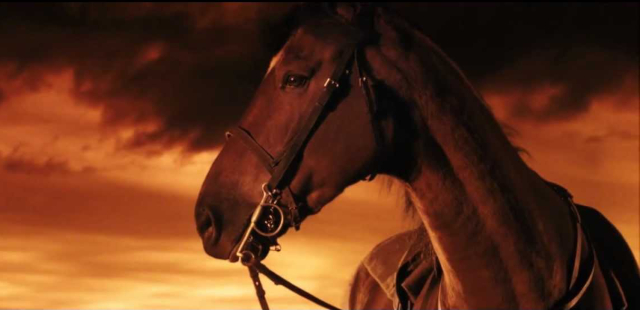
Oscar Nominations: Best Picture, Best Cinematography, Best Art Direction, Best Sound Editing, Best Sound Mixing, Best Original Score
Somehow, War Horse came away empty handed at the 2011 Oscars. This film is one of Steven Spielberg’s very best epics. It follows a horse named Joey, Forrest Gump-style, through World War One Europe. Joey’s original owner, Albert (a wonderful Jeremy Irvine) is heartbroken that his amazing workhorse was sold to the Army, and therefore enlists himself. What follows is a magical, life-affirming journey. The brilliant way that Spielberg and Janusz Kaminski exhibit the horse conveys incredible emotion and sympathy. It may be the greatest cinematic animal character in history.
The fact that this beautiful film went un-awarded is an incredible shame. The No Man’s Land scenes are as visceral and terrifying as anything in Saving Private Ryan. Also, take a look at those final shots. A screen grab of that could be hung in the Metropolitan Museum of Art.








